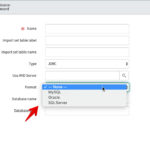
Someone recently asked me how to send Japanese characters as field values to an incident when using the ServiceNow Perl API.
I created a script based off of examples in the ServiceNow Perl API documentation and found that my field value was converted to a Base64 string by the time it arrived into ServiceNow.
I did some poking around and found out that the Perl module, SOAP::Lite, which is used by the ServiceNow API, will automatically encode a web service field to base64 if it doesn’t understand the data type it is using. In order to submit the real UTF-8 value of the field, you have to explicitly set the data type to string and decode the string to UTF.
In order to do this, I had to make sure to include the following libraries in my script: “SOAP::Lite”, and “Encode”.
Then, when defining my field that had the Japanese characters, I set the field in the following manner:
1 2 | use SOAP::Lite; use Encode; |
1 | my $subject = SOAP::Data->type(string => decode_utf8('Test Test æ¼¢å—ä»®å交ã˜ã‚Šæ–‡')); |
Once I did this, I was able to create and incident where the subject contained Japanese characters.
Here is my code:
1 2 3 4 5 6 7 8 9 10 11 12 13 14 15 16 17 18 19 20 21 22 23 24 25 26 27 28 | #!/usr/bin/perl -w # use ServiceNow; use ServiceNow::Configuration; use ServiceNow::GlideRecord; use SOAP::Lite; use Encode; my $CONFIG = ServiceNow::Configuration->new(); my $subject = SOAP::Data->type(string => decode_utf8('Test Test æ¼¢å—ä»®å交ã˜ã‚Šæ–‡')); print"\nSUBJECT: ".$subject."\n"; $CONFIG->setSoapEndPoint("https://myinstance.service-now.com/"); $CONFIG->setUserName("admin"); $CONFIG->setUserPassword("admin"); print "############### create/insert\n"; print "######## using GlideRecord object\n\n"; my $gr = ServiceNow::GlideRecord->new($CONFIG, "incident"); $gr->setValue("short_description", $subject); $gr->setValue("category", "hardware"); my $sysid = $gr->insert(); print "sys_id = " . $sysid . "\n"; print "number = " . $gr->getValue("number") . "\n"; 1; |




